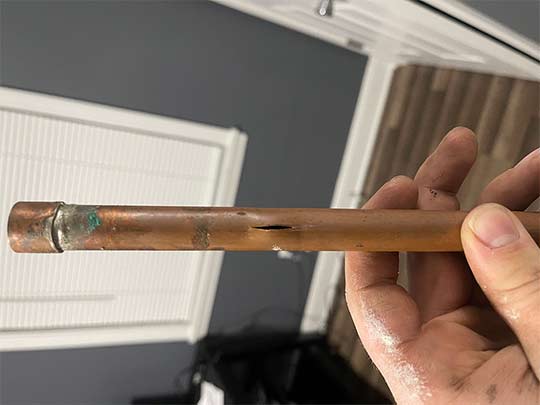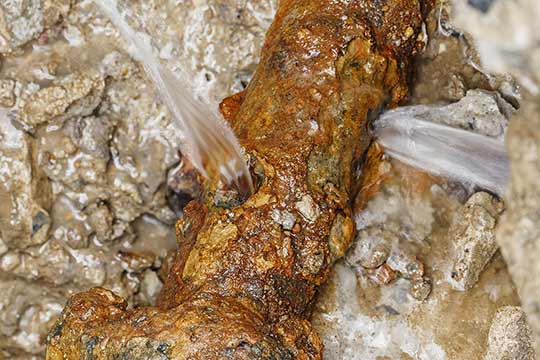
What should you do if you have a broken pipe in your home? Broken water pipes in the home often announce their presence in the most destructive ways, warns Haas Property Management. You may not even know there is a problem with your pipes until your home is suddenly flooded by water spilling from a leak.
In the worse cases, you don’t even see any water because the broken pipe is hidden behind a wall. The only indication of the problem is when you start to see mold around the leak area, the paint changes color, or parts of the drywall become soft and start to bulge.
However, broken and burst water pipes are not the only plumbing leaks you can have in the home. Gas pipes can also leak. Although they are not as common as water pipe leaks, gas leaks are much more dangerous. This is because of the fire risk and gas leak suffocation.
If you spot a broken pipe in your home, what can you do to minimize the damage caused by the leak and the inconvenience to your household? The first minutes of discovering a leaking pipe in your home are the most critical; here is what you can do during those times.
Emergency tips for dealing with a broken pipe
What to do if the gas line is leaking
Turn the gas off
If you smell gas in your home, do not attempt to find the source of the leak; turn off the gas. To turn the gas off, locate the gas shutoff valve. It should be right next to the gas meter, the first fitting on the inlet side of the meter. To shut the line, turn the valve until it is at a ninety-degree angle to the pipe (crosswise). You may need a wrench for this operation.
Call your plumber
When dealing with gas leaks, it’s never a good idea to try to locate the leak yourself. Professional plumbers know how to identify and fix a gas leak. If you don’t know how to turn the gas off, call the plumber and have them come to your house immediately or tell you how to turn the gas off over the phone.
If you cannot reach a plumber, your next best option is to call the gas company. The gas company will only turn off your gas; they won’t fix the leak. Moreover, if the gas company turns the gas off, you will need a permit to fix the leak and an inspection before turning it back on. This will cost you money and time.
What to do if a water pipe is broken
Find the main water shutoff valve
It is important to know the location of your main water shutoff valve before you ever have a water leak in your home. Many plumbing fixtures in your home have a dedicated shutoff valve that you can use to stop water flow to that fixture. But the main water shutoff valve controls the water flow to the entire home.
For many homes, the main water shutoff valve is located on the street-facing side of the house, along the property’s perimeter, right after the water meter. Turning this valve until it closes will stop water flow to your home. Everyone in the house should know where this feature is located and how to use it. This is the easiest way to minimize damage to your home if you have a plumbing leak.
Turn off the water supply to the fixture
If you don’t know where the main water shutoff valve is, you can try to turn the water off at the valve near the leaking fixture. This is often only possible when dealing with water heater leaks or a burst pipe emergency. A shutoff valve should be next to your water heater or a ball or gate valve on the wall close to the bathroom. Turning the valve will stop the flow of water or slow it down.
Fix the leak with a rubber pad
If there is a pinhole leak on a copper pipe, but you can’t get a plumber to come over (maybe because it is late in the night), this is what you can do: you can stop the leak temporarily by cutting a piece from a rubber pad and covering the hole with it. Clamp down on the part of rubber by tightening a hose clamp over it. This will let you run your water until you can get your local plumber to repair the leak properly.
Fix the pipe with a compression coupling
This only works for PVC pipes with a small crack in the pipe. To fix the pipe, cut off the affected portion, and slip the compression end and gasket of the coupling onto the two sides of the cut pipe. Install the sleeve from the coupling between the two ends of the cut pipe and seal the joint with the compression ends and gasket.
These are some simple steps you can do in case of a gas or water leak. Knowing what to do during these emergency plumbing situations may save you money and your property from further damage.
